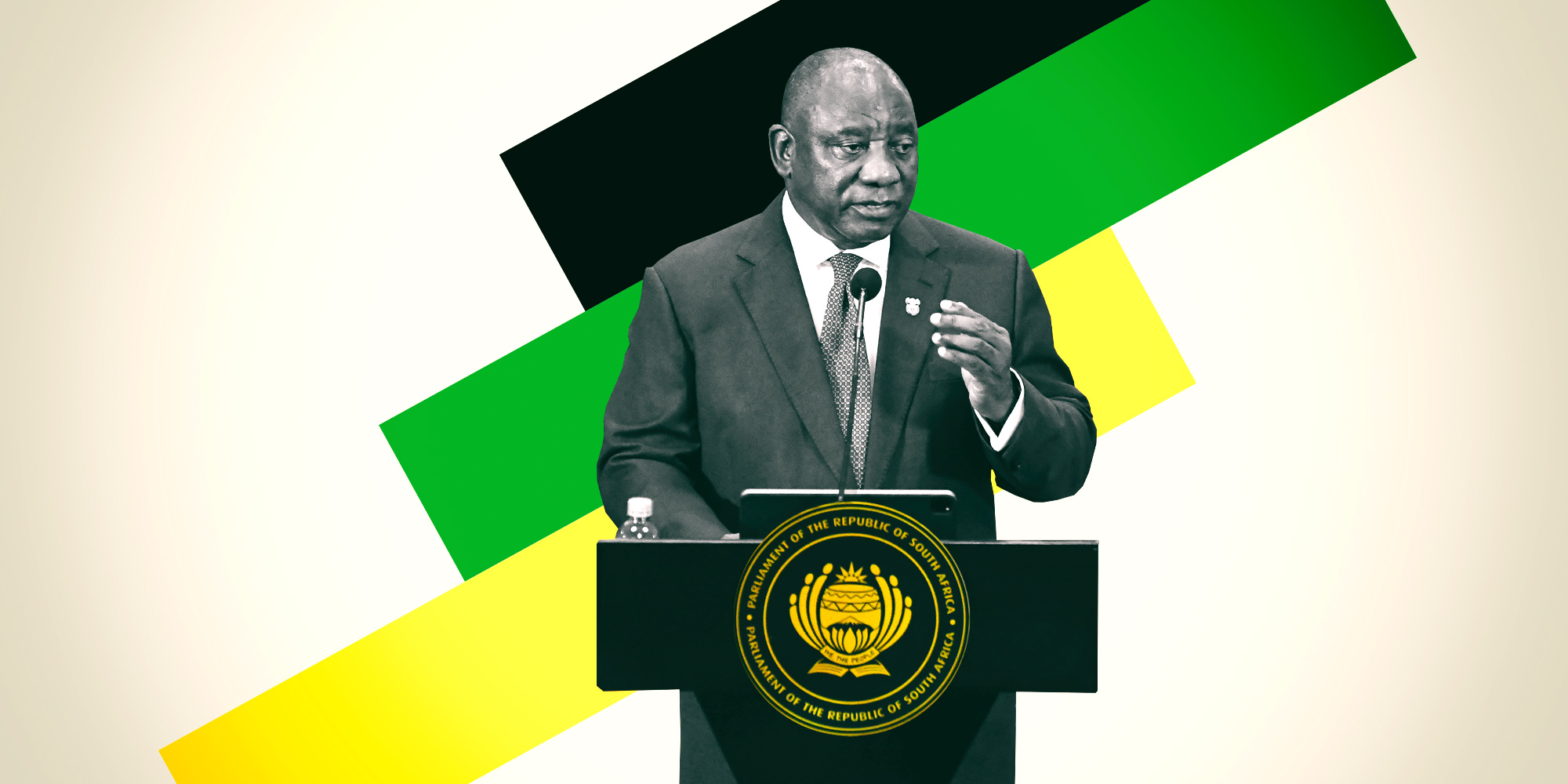As a thought exercise last week, I invited readers to notice what was not said in President Cyril Ramaphosa’s State of the Nation Address (Sona), rather than focusing on what was said. What did you think? Do let me know.
In the meantime, allow me to propose an answer to my own question. I think the big blank, the gigantic conceptual black hole is this: the stunning lack of mea culpa.
South Africa, I think we all acknowledge, is in a pretty poor state. It is not terminal, but it is pretty chronic. You can take whatever measure you would like, but the one I often trot out is the GDP lag: over the past 10 years, South Africa has underperformed the average GDP of the world, developed countries, developing countries, sub-Saharan Africa, southern Africa, East Asia (obviously), South East Asia, South America, the BRICS group (obviously) — and its own expectations. Just to name a few. That is quite a list.
That underperformance is affecting everything: government infrastructure, the government deficit, the level of government debt, unemployment, houses without electricity, hospitals without water — whatever matters. Just name it.
Visit Daily Maverick’s home page for more news, analysis and investigations
You have to say, Ramaphosa really gave it a good thump in his speech on Thursday, 9 February. Outside of the EFF’s shenanigans, the speech itself took a good two-and-a-quarter hours. Few subjects were left unaddressed. Boxes were ticked. Clearly, all ministers were consulted and had the opportunity to make a pitch for their pet projects.
And neither was the speech entirely without apologies for South Africa’s dire state — though much of it was by implication rather than by expression. For example, he did say: “Too many of our municipalities, 163 out of 257, are dysfunctional or in distress.”
He addressed the issue by saying: “Integrity assessments will become a mandatory requirement for recruitment to the public service and entry exams will be introduced.” Hmmm.
But what I was looking for was something different: a recognition that the actor behind South Africa’s failure was ANC policy itself, because without that recognition, can we really be confident that policy is going to change?
Numb recognition
There was plenty of recognition that SA is in a “crisis”, but no acknowledgement of the causes of the crisis, and the ANC’s own participation in, or causation of, those crises.
We got instead a kind of numb recognition that things aren’t going right. But the response, outside of the electricity crisis, was more often than not, a doubling down on existing plans to fix the problem.
Fundamentally, the ANC does not believe that the mess the country is in any way a consequence of its own policies, so it sees reason to adapt, but no reason to change fundamentally its approach to governance.
Take, for example, the passage on the social compact. Here, you might think, would be a good opportunity to self-flagellate because Ramaphosa did specifically promise last year at this time to create a social compact within 100 days. And that didn’t happen, as we know. But why did it not happen?
Well, according to Ramaphosa: “We were not able to conclude a social compact in the timeframe we had envisaged because a number of new circumstances emerged that made it difficult for social partners to forge a consensus.”
Mealy-mouthed excuses
Now that is just mealy-mouthed. Let me translate and tell you what happened. First, labour was angry because it seemed to them that the government was focusing all its time and effort on business and little on them.
Business had a different problem: the government wanted very exact, numerically specific undertakings on investment, BBBEE and localisation, as well as a whole range of other issues.
Business argued the level of undertakings the government was putting on the table was just absurd. And, anyway, it’s very difficult for business to give specific numerical undertakings because there is this weird thing called the business cycle, which is not exactly predictable, as we are seeing at this very moment.
The whole idea of numerical targets fits into Trade, Industry and Competition Minister Ebrahim Patel’s vision of business as an inanimate chess piece that the government can and should move around the board as it desires.
Labour, oddly enough, has the same issue.
And business and labour both wanted to know what the government would bring to the party. What they got instead was an undertaking to reform and better governance (see absurd, above).
‘Just do your job’
The response of both labour and business was, well, “That’s your job, isn’t it? That’s not a concession, that’s what you are supposed to do.”
So, to characterise the failure to develop the social compact as, first, the consequence of the very vague “new circumstances”, and second, to attribute the failure to the social partners and not yourself, is entirely oblivious of the government’s own failings and misreading of what is possible.
Physicist Albert Einstein’s most famous misattributed quote is that the definition of insanity is doing the same thing over and over and expecting a different result. I like a similar quote attributed to American educator and counsellor Jessie Potter opening a women’s conference, who said: “If you always do what you’ve always done, you always get what you’ve always gotten.”
Why has that not penetrated the ANC’s mindset and policy-making machine? BM/DM





